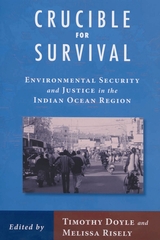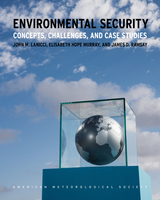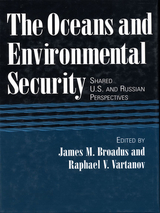


The purpose of text is to better address the many aspects of environmental security and to represent this major area of academic research in an introductory text format that can be used in the rapidly growing number of homeland security studies programs as well as related degree programs. The concepts, challenges, and case studies in this text vitally extended such curricula, giving students a deeper appreciation for the critical role environmental security plays in overall state security, as well as for our nation, our way of life, and indeed for the human race at large.

The concept of environmental security, drawing on the widely understood notion of international strategic interdependence (in facing, for example, threats of nuclear war or economic collapse) is gaining currency as a way of thinking about international environmental management.
In 1989, the Institute for World Economy and International Relations of the Russian Academy of Sciences and the Marine Policy Center of Woods Hole Oceanographic Institution instituted a joint project to examine environmental security as it applies to the world's oceans. The Oceans and Environmental Security is a unified expression of their findings.
The oceans, as global commons, are of central importance to issues of international environmental security. Critical problems are those that are likely to destabilize normal relations between nations and provoke international countermeasures. As such, the book focuses on seven specific concerns:
- land-based marine pollution
- North Pacific fisheries depletion
- hazardous materials transport
- nuclear contamination
- the Arctic Ocean
- the Southern Ocean and Antarctica
- the Law of the Sea
READERS
Browse our collection.
PUBLISHERS
See BiblioVault's publisher services.
STUDENT SERVICES
Files for college accessibility offices.
UChicago Accessibility Resources
home | accessibility | search | about | contact us
BiblioVault ® 2001 - 2024
The University of Chicago Press









